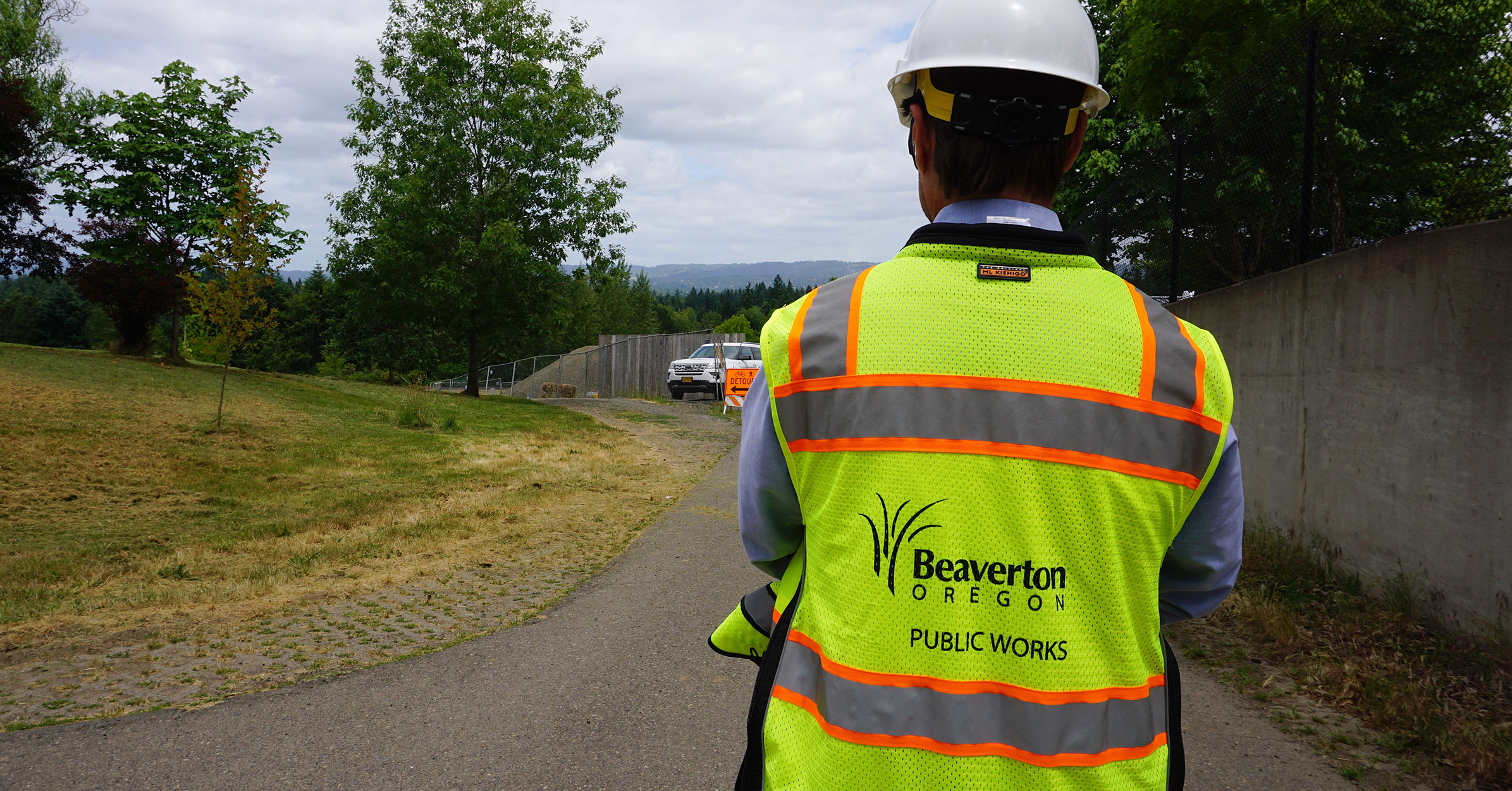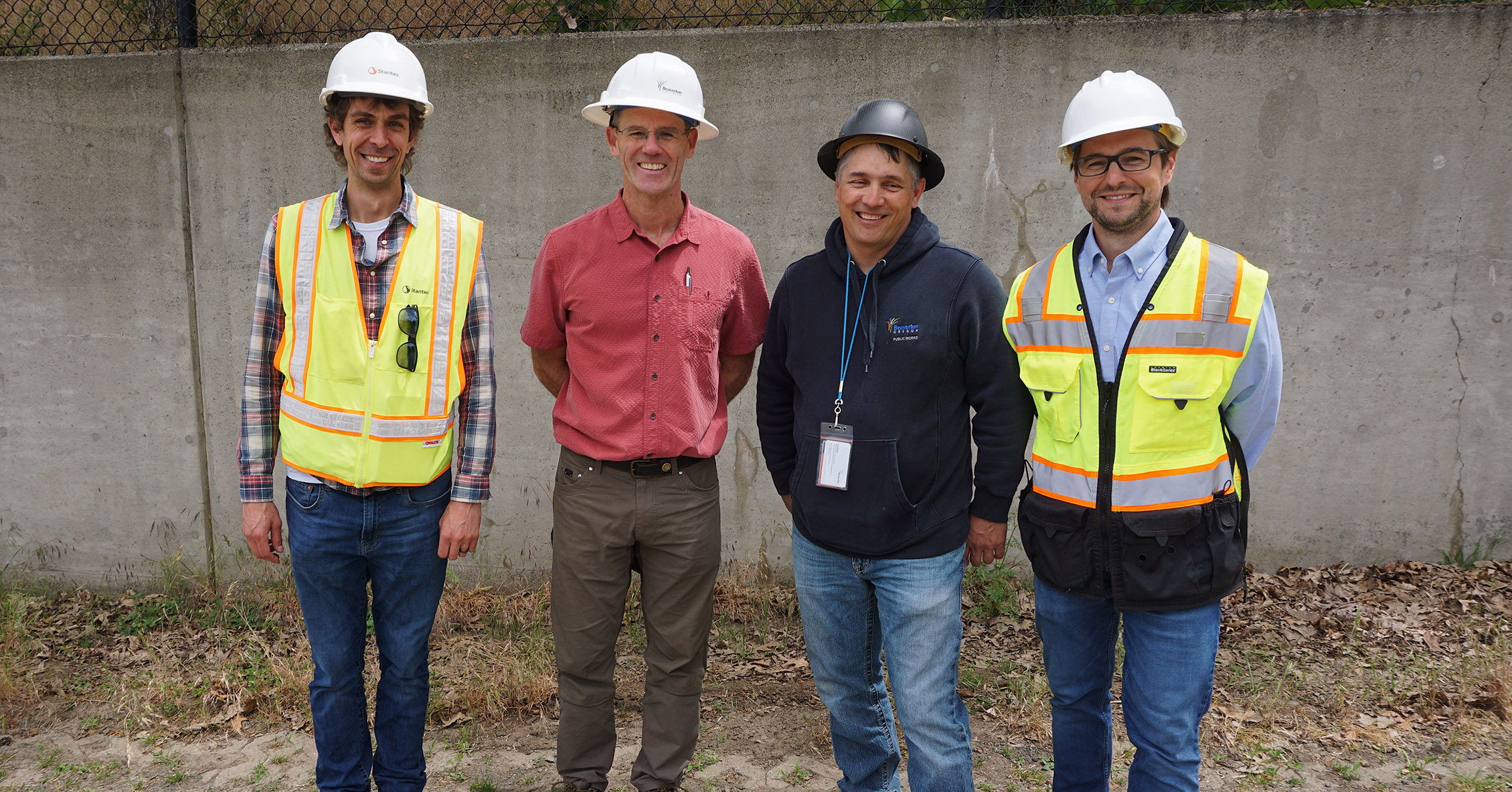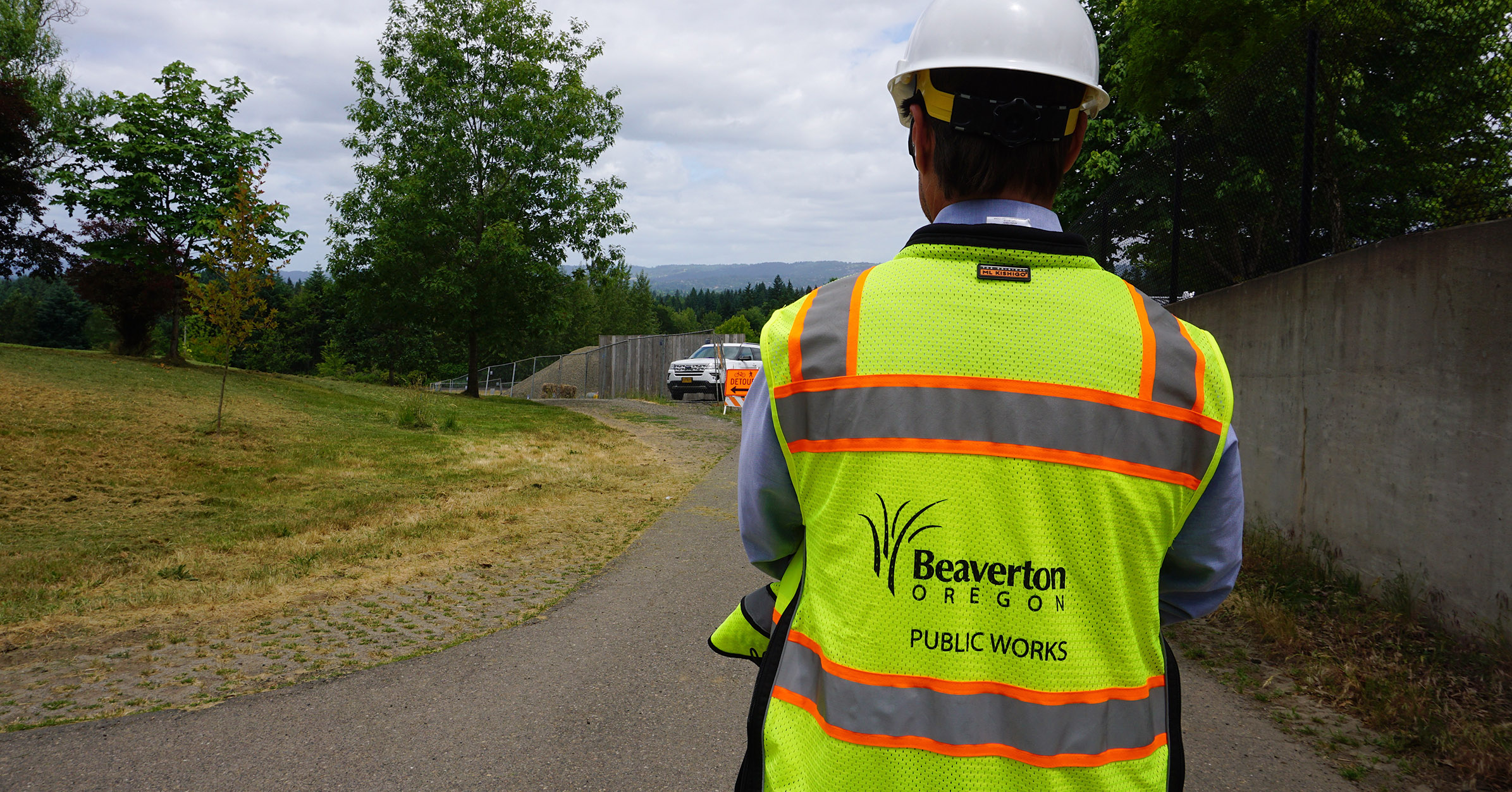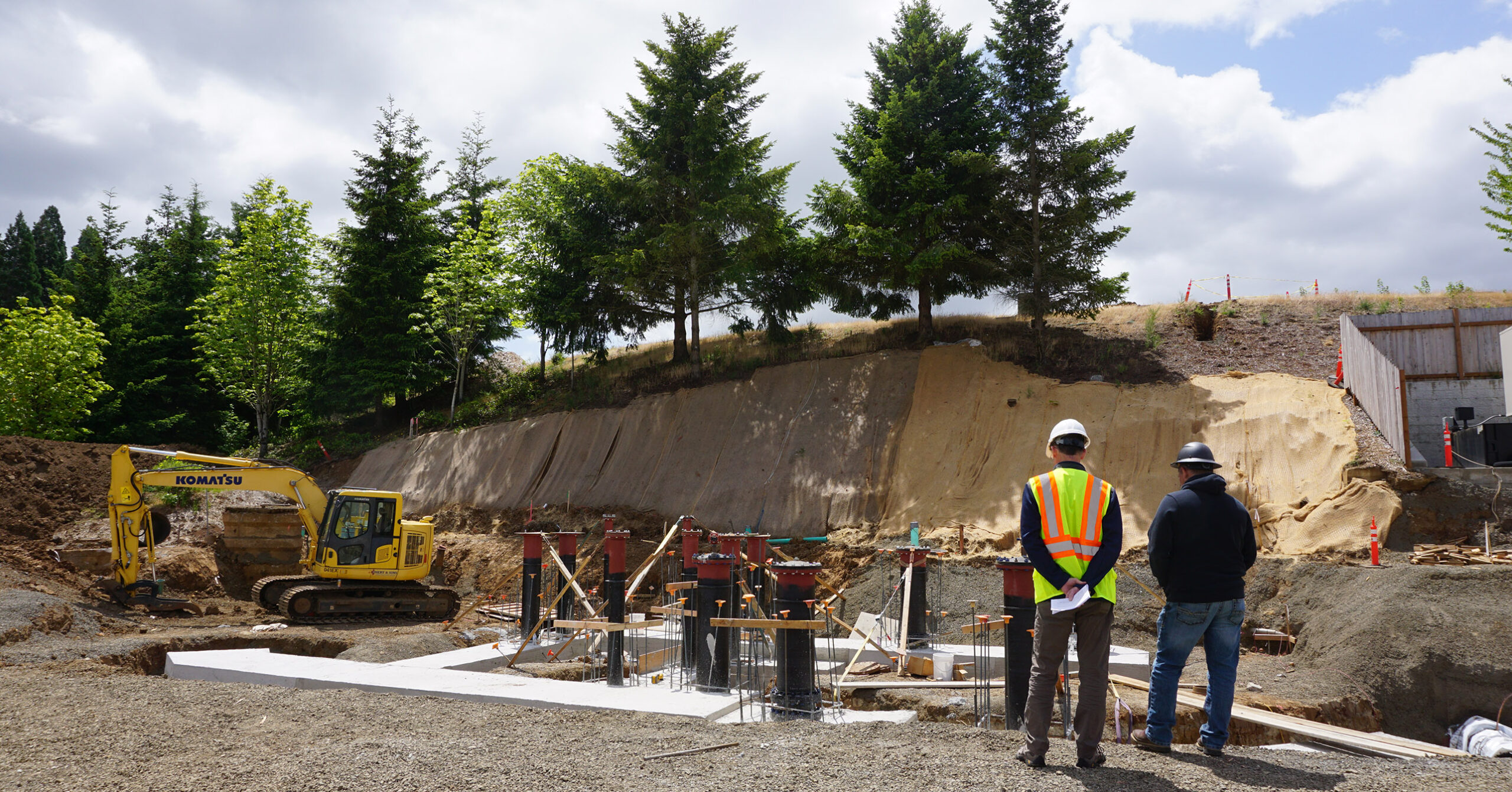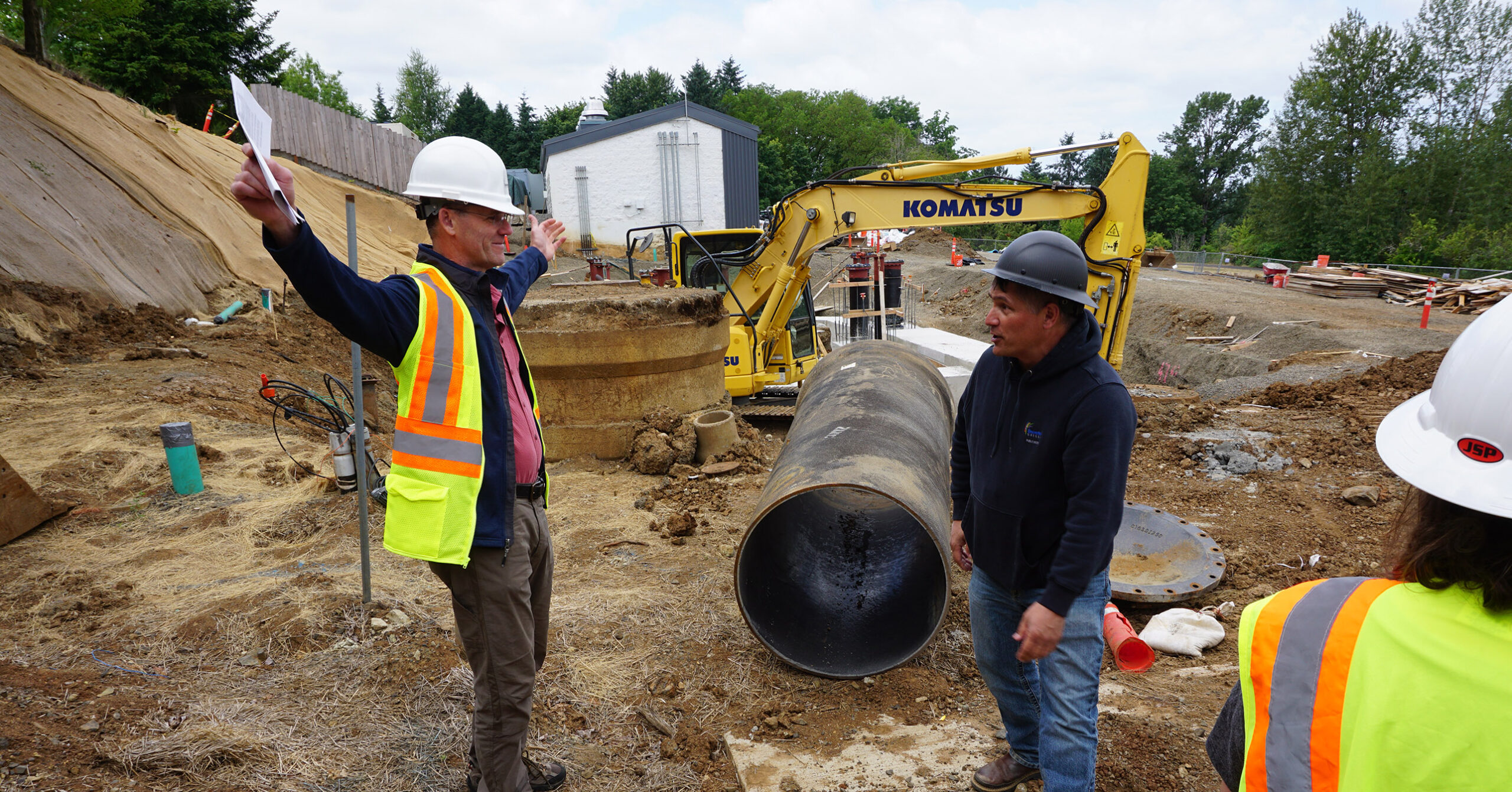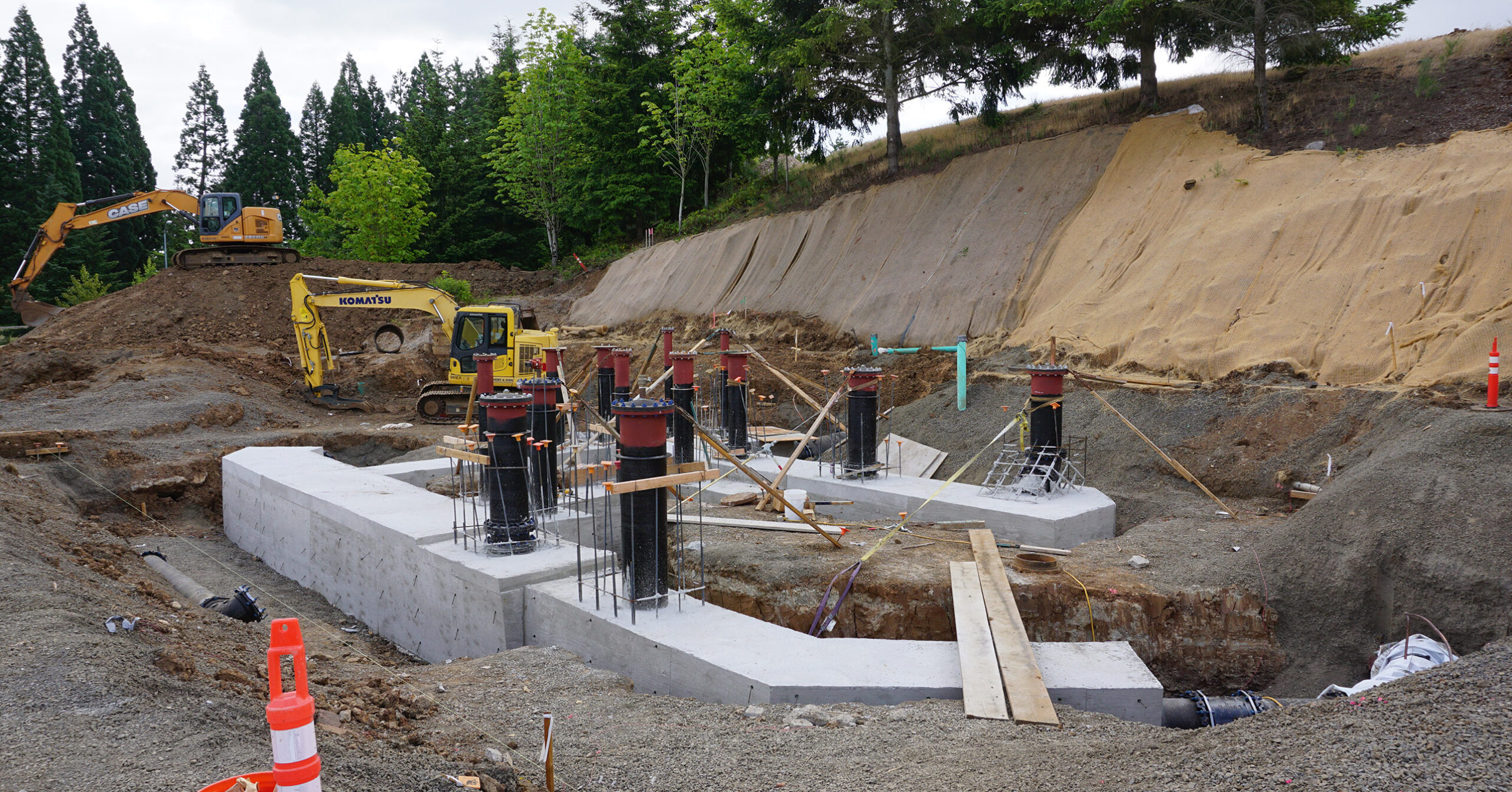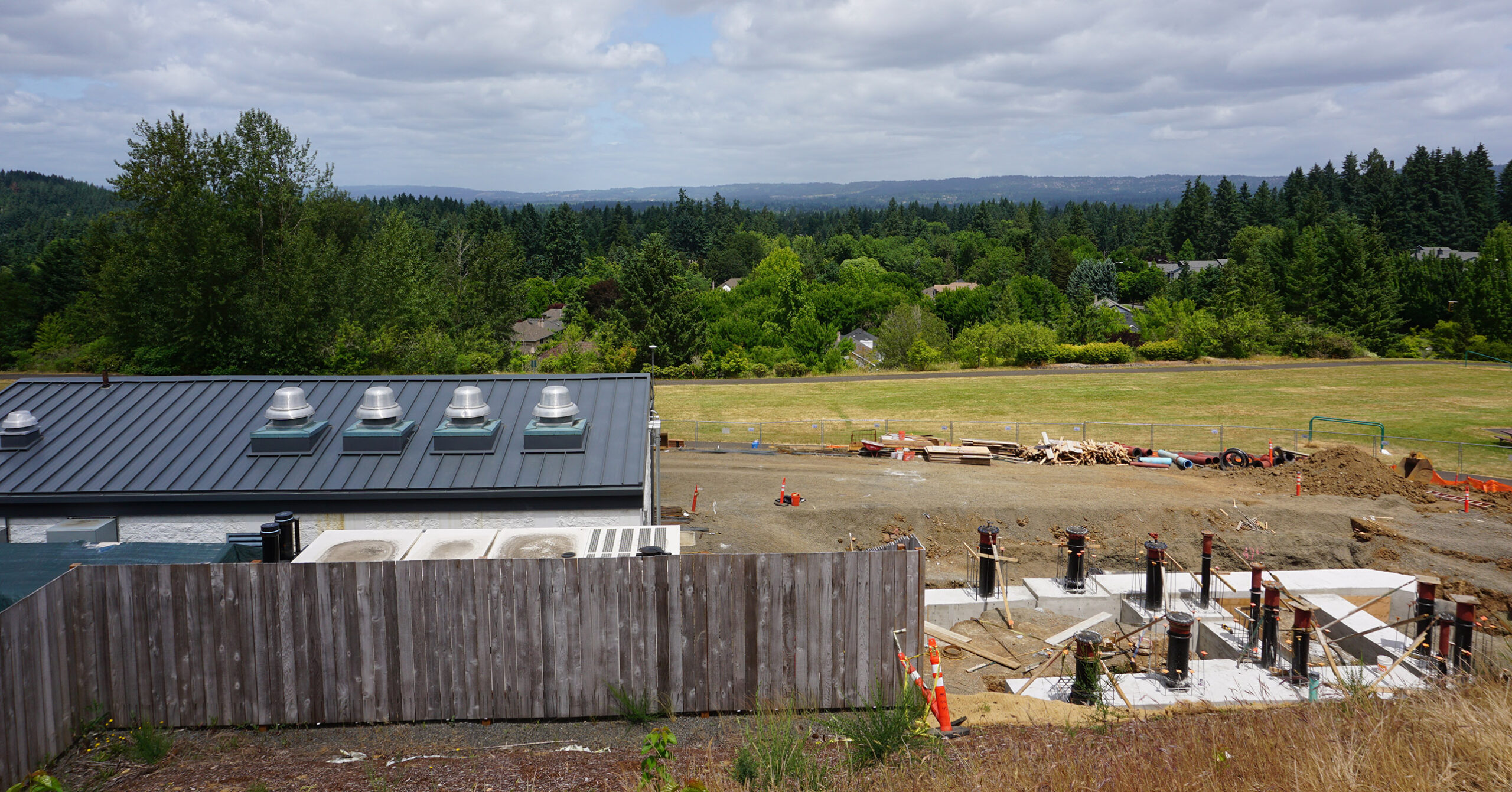Climate change is a global issue that requires local action, and the City of Beaverton is taking a number of innovative actions to reduce its greenhouse gas emission impact. The City of Beaverton has set aggressive climate goals in its comprehensive Climate Action Plan, including a 100% reduction of emissions by 2050. As one step toward achieving this goal, Beaverton will become one of the first cities in Oregon to add hydropower to its drinking water system, following the City of Hillsboro in 2022.
By next year, infrastructure upgrades at Beaverton’s Sexton Mountain Pump Station will essentially turn the city’s water delivery system into a renewable energy power generator using a hydropower turbine. This project is one of many the city has planned to upgrade the city’s water supply in a changing climate.
Water delivery systems are typically one of the biggest expenses for cities. In fact, energy consumption by water utilities can represent up to 40% of a municipality’s energy bill. In Beaverton, the Sexton Mountain Pump Station is the heart of the city’s water system, with millions of gallons flowing through its pipes every day. Water must flow through pipes at a rate and pressure designed for that part of the delivery system. To ensure system reliability and safety, Pressure Reduction Valves (PRV) are typically used to protect pipes and deliver water to customers at a specified pressure. These pressure reduction valve locations can present a great opportunity for clean energy generation. By installing a hydropower turbine at the PRV, the City of Beaverton can leverage basic infrastructure to create renewable energy that partially off-sets the pump station’s energy load and also provides water pressure reliability and safety.
“When we created our climate action plan, it was important that we looked at all city operations to see where improvements could be made, big or small, and from that we identified 86 specific actions,” said Dan Weinheimer, Beaverton Assistant City Manager. “When put together, a series of small solutions isn’t so small. We can make a huge impact across the city’s operations, from waste management to transportation to water conservation.”
While it’s a simple technology, this type of in-conduit hydropower upgrade can be costly and inaccessible. Energy Trust of Oregon is helping to bring this simple climate solution to Beaverton by funding half the projected costs of the hydro turbine, or roughly $450,000, as well as funding for the analysis and engineering work associated with the hydro turbine.
“When cities reach their climate goals, we all win. That’s why we are always looking for ways to help municipalities identify clean energy solutions and act on them,” said Dave Moldal, Senior Program Manager at Energy Trust. “This hydropower project is an upgrade that will make a big difference – and we hope other cities will follow Beaverton’s lead.”
Once complete, this upgrade will generate an estimated 426 megawatt-hours of renewable electricity a year, or enough energy to power 40 average homes for one year. The net-metered generated electricity will offset approximately 27% of Sexton Mountain Pump Station’s energy load.
“The fact is, urban areas are the top contributors of carbon emissions. It’s local actions, like our hydropower project, that will ultimately make the largest difference,” said Beaverton Mayor Lacey Beaty. “We’re taking small steps that will add up to a large impact on our climate goals and deliver a more resilient community for future generations.”

